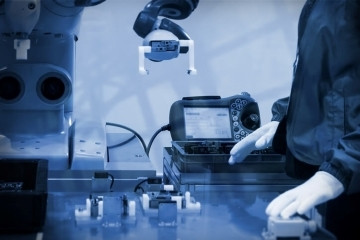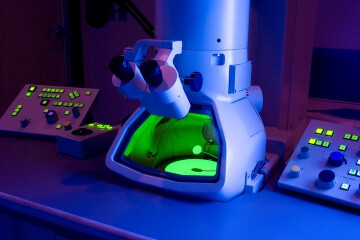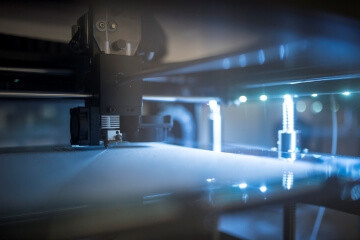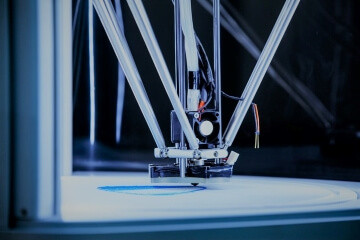Electronics Articles
Electropages Insights Blog covers the latest in electronic design through webinars and articles. Delve into topics from sensors to AI implications. Stay ahead with Electropages.
Collaborative robots (cobots) are coming to the fore across a broad swathe of industries including the aerospace, medical, and automotive sectors enabling better quality, better processes and thereby helping manufacturers to improve their overall operations. U...
By Nnamdi Anyadike | 14-05-2020
The electron microscope allows magnifications of about ten million times, as compared to the one or two thousand times possible with a classical optical microscope. It empowers researchers to delve into realms not previously accessible to them. An Electron Mi...
Articles | By Gary Elinoff | 13-05-2020
The electron microscope allows magnifications of about ten million times, as compared to the one or two thousand times possible with a classical optical microscope. It empowers researchers to delve into realms not previously accessible to them. An Electron Mi...
Insights | By Gary Elinoff | 13-05-2020
The electron microscope allows magnifications of about ten million times, as compared to the one or two thousand times possible with a classical optical microscope. It empowers researchers to delve into realms not previously accessible to them. An Electron Mi...
Educational | By Gary Elinoff | 13-05-2020
Electropages Podcasts
While the world is trying to come grips with life under different normalities and social distancing policies, scientists are trying hard to find new ways of combatting the virus. By working on a vaccine to combat the spread of the disease or more effective tes...
By Liam Critchley | 12-05-2020
Researchers at MIT have developed a specialised conductive gel that allows for conductive polymers to remain on surfaces when exposed to moist environments. Why is this technology promising, and what problems do wearable technologies currently face? Wearable T...
By Robin Mitchell | 11-05-2020
3D printing has become increasingly popular. While it’s a growing area for at-home makers, 3D printing is often applied to industrial production, a process known as additive manufacturing. Through adopting 3D printing in industrial production, additive manufac...
By Moe Long | 08-05-2020
While the coronavirus halts the movement and economic activity of the world, medical professionals are trying to contain the spread of the virus by testing as many people as possible who have COVID-19 symptoms. Testing is currently the most effective way of co...
By Liam Critchley | 07-05-2020
The integration of IoT technology into industrial environments has sparked a new industrial revolution that seeks to create smart, automated processes. But current wireless internet technologies such as Wi-Fi will not be able to handle the mass integration of...
By Robin Mitchell | 06-05-2020
The speed with which a malfunction can be reacted to is of great importance for production companies. In order to facilitate a more rapid response to breakdowns, manufacturers are increasingly turning to artificial intelligence (AI) as a fault management tool....
By Nnamdi Anyadike | 05-05-2020
Cardiovascular disease (CVD) is one of the biggest killers in the world where medical ailments are concerned. In normal times, a lot of time and research is dedicated to treating cardiovascular diseases, and while the current coronavirus pandemic is taking up...
By Liam Critchley | 04-05-2020
Laser cutting and 3D printing have been used to make a personal respirator that could be used worldwide to protect doctors and nurses tackling the COVID-19 pandemic. At the beginning of April, frontline healthcare staff in the UK were testing the prototype res...
By Rob Coppinger | 01-05-2020













